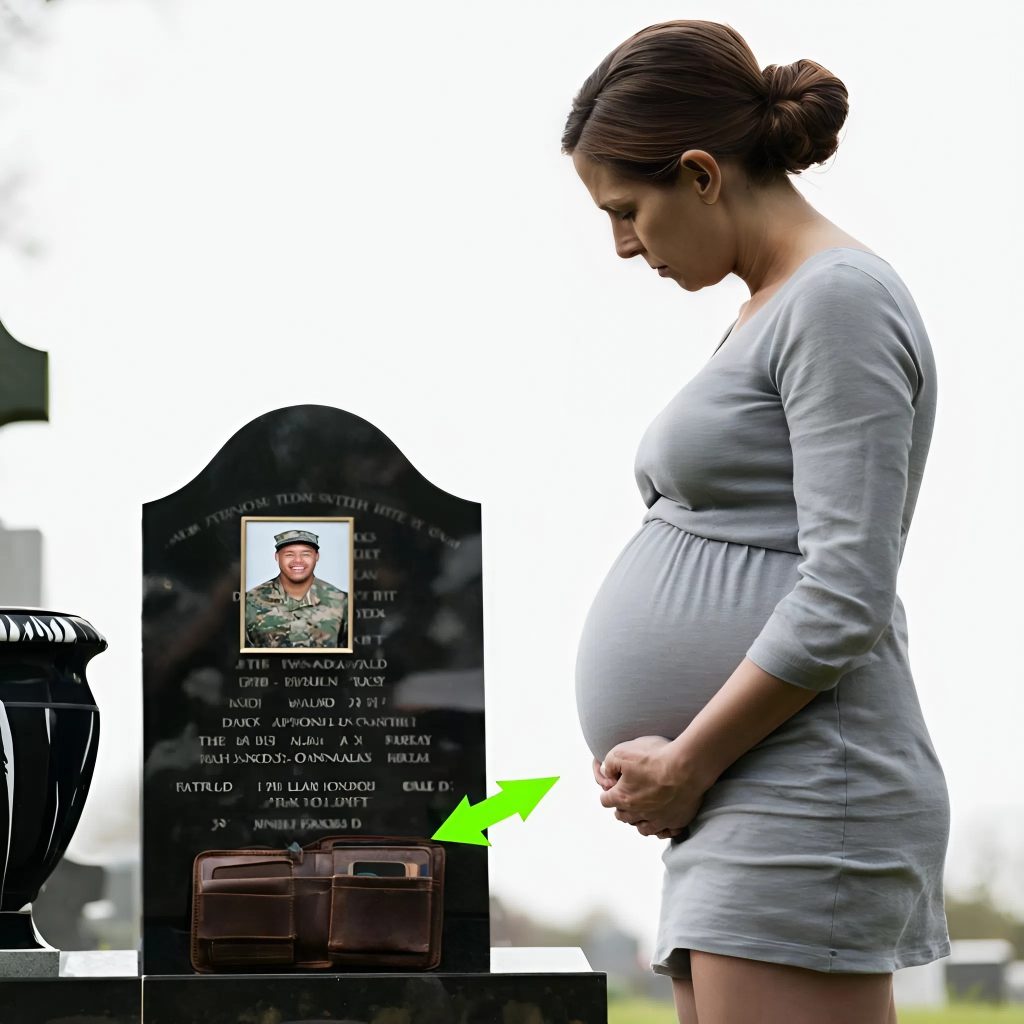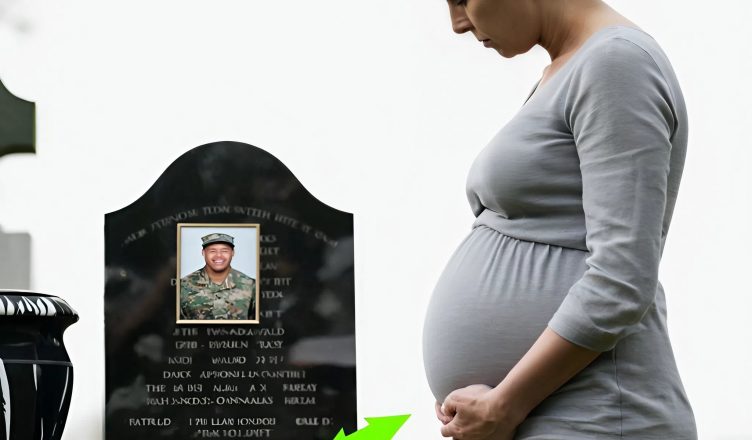The June sun gently brushed over the cold marble, making the gravestones shimmer faintly. Karina walked slowly, head down, trying not to glance at the faces on the photographs — lives long gone. She hadn’t come here for memories or mourning. Her purpose was far more grim. Cemeteries often held food — fruit, candies — left by mourners. For others, it was a tribute to the dead. For her, it was survival.
Pregnancy made her steps heavy, and her past gave her eyes a deep, stone-like weariness. Three weeks earlier she had walked out of prison after serving time for theft. Freedom, however, proved to be an illusion: there was no work, her relatives had turned their backs, and the friends she once had had vanished as if they never existed. Every day was a fight for a piece of bread.
That day, Karina had planned to make just a short round — her energy was running low. But near one lavish grave, decorated with fresh flowers and a carved monument, she noticed something dark under a bench. Looking closer, she saw it was a leather wallet. Her heartbeat quickened.
She scanned the alley — empty. Lifting the wallet, she felt its weight. Heavy… there must be something inside. Her fingers trembled. She imagined buying bread, milk, maybe even something sweet. The clasp gave a soft click as she opened it, and her hopes of finding cash dissolved instantly.
No bills. No coins. Instead — several faded photographs, a few neatly folded letters, and a wedding ring with an engraved inscription.
Karina frowned. The photos showed a man in his forties, smiling beside a woman and a small boy.
She unfolded one of the letters. The handwriting was neat, unmistakably feminine. The first lines hit her like a blow:
«My love, if you are reading this, it means I am gone. I know you will always be there for our son. Take care of him and remember that we loved you more than life itself…»

Her chest tightened. Her fingers lingered on the cold metal of the ring, and a wave of shame and sadness washed over her. She remembered how she once dreamed of a family, a home, warmth… and instead got prison walls, loneliness, and distrust.
On the back of the boy’s photo, she noticed a small note: “To my son on his 5th birthday. Dad loves you.” This wasn’t just someone’s forgotten property — it was a fragment of a life, preserved here at the grave as a symbol of love and loss.
Karina slowly closed the wallet. The thought flashed — she could sell the ring, get money, buy food. But alongside that thought came something else — for the first time in years, she felt the stirrings of conscience.
She placed the wallet back where she had found it, carefully wiping away the dust, and whispered:
— I’m sorry…
Tears slid down her face, mixing with the dirt. She walked away, but something inside her had shifted. Perhaps, for the first time, she realized her life could still change — not because of morality or fear of punishment, but because she understood that even the most lost souls can choose to be just a little cleaner.
That evening she returned to her rented room empty-handed but filled with unexpected resolve. Tomorrow she would try to find work. Washing floors, unloading goods — anything was better than losing herself again.
Karina knew her path would be hard, but now she had a reason to fight — not only for her unborn child, but for the day she could finally look herself in the eye without shame.
